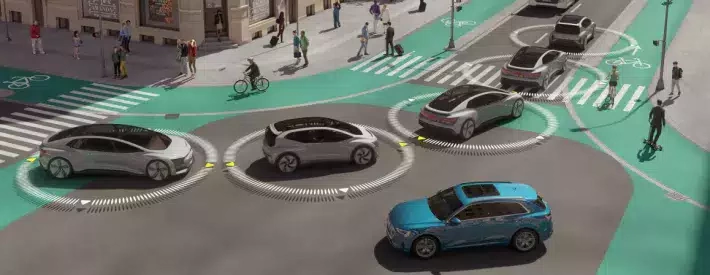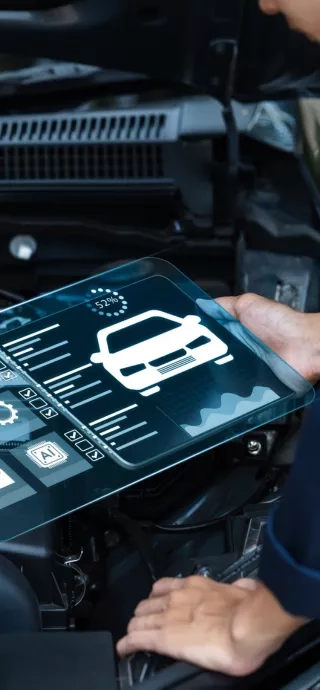Automated Vehicles Bill to receive Royal Assent: The IMI urges government to urgently understand automotive aftermarket skills requirement

New IMI data shows ADAS upskilling is not currently keeping pace with UK car parc level 2 autonomy, ringing alarm bells for a safe future of fully automated vehicles
The Automated Vehicles Bill 2024 is set to receive Royal Assent, providing a pathway to the future of autonomous travel within the UK. However, the Institute of the Motor Industry, the professional body representing the interests of those working in the automotive sector, believes there is still work to be done to ensure the funding is available for the upskilling required to work on and calibrate automated vehicles for safe use.
The IMI’s latest data shows that at the end of March 2024 there were 4,150 technicians qualified to work on vehicles with level 2 autonomy, representing just 2% of all UK technicians. Level 2 autonomy is the pre-cursor to fully automated vehicles and currently 12% of the UK car parc features some form of advanced driver assistance systems (ADAS). Therefore, even before fully automated vehicles become available there is a serious road safety risk.
“The Automated Vehicles Bill 2024 addresses the liability issues of automated vehicles for manufacturers and insurers and provides a positive pathway for the introduction of this new form of mobility that could be empowering for so many”, explained Hayley Pells, Policy Lead at the IMI. “Clearly this is just the first step, and the IMI is keen to ensure that future legislation also takes into account the skills that will be crucial in the aftermarket for safe use of automated vehicles.
“The automotive aftermarket – the dealers, workshops and technicians that maintain and repair vehicles - should be congratulated for its ability to adapt and respond to changing innovation and technology; how it has upskilled to meet the needs of electric vehicle drivers is testament to that commitment. However, the rapidly growing parc of vehicles fitted with some form of ADAS is putting a sector already facing a significant skills gap under further pressure. We expect half of the vehicles on the road to feature ADAS as soon as 2032, but at the current rate of certification this will represent a significant and dangerous skills gap for the industry. And that’s even before we think about the introduction of fully automated vehicles.
“Failure to maintain and update these high-tech systems, many of which are designed to keep road users safe, really could be a matter of life and death. To ensure checks are carried out accurately, we desperately need more technicians to be trained to work on vehicles with this technology. We are therefore urging government and policymakers to ensure there’s the funding and infrastructure to support the essential upskilling.”
ADAS technology is a vital part of the journey towards fully automated vehicles, focusing initially on increasing safety and convenience without taking full control away from the driver. Systems such as lane assist, adaptive cruise control and self-parking allow the vehicle to control steering, acceleration and braking. If not properly maintained and serviced by a fully qualified technician, these systems present a potentially fatal risk to drivers, passengers and other road users.
The IMI launched Level 2 and Level 3 ADAS qualifications in 2022. The IMI TechSafe recognition program provides independent assessment and recognition of the technical competence of technicians working in the UK automotive sector. IMI TechSafe identifies a member’s professionalism and safe working practice in the field of electric vehicles (EV) and other safety-critical vehicle systems such as Autonomous or Advanced Driver Assistance Systems (ADAS).






